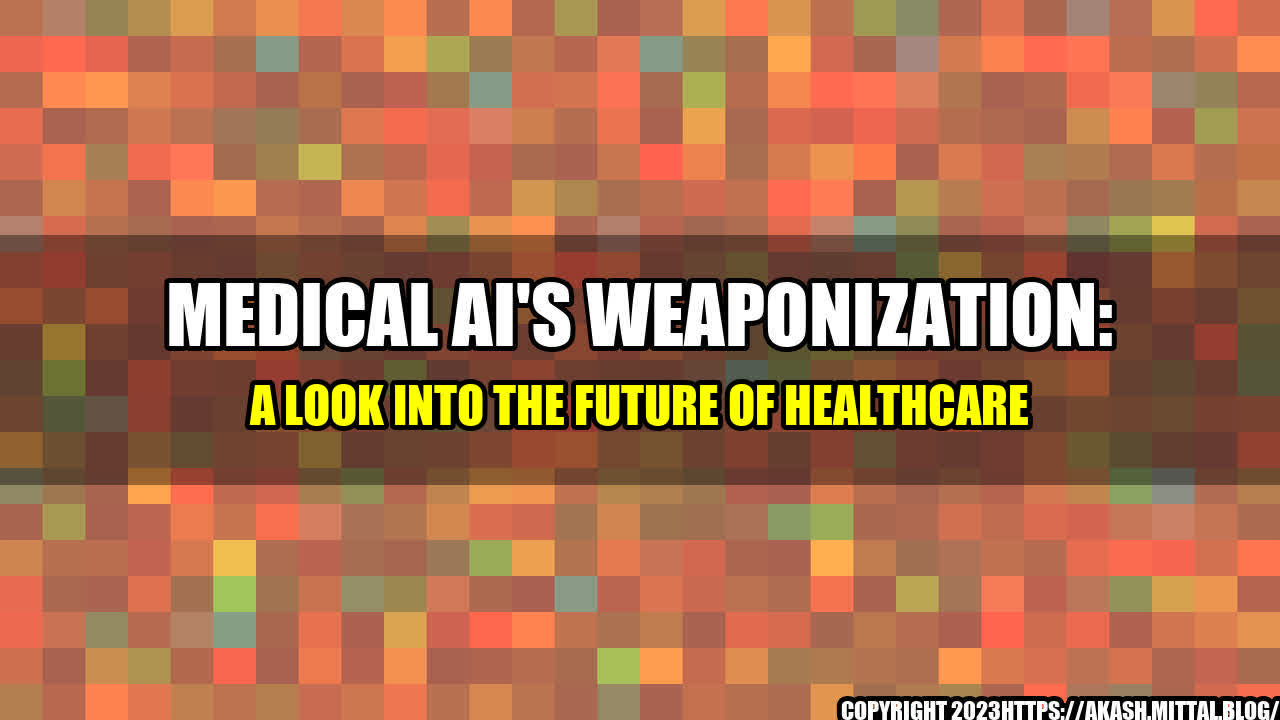In 2017, a team of researchers from the University of Cambridge taught an AI system to read mammograms and detect breast cancer with an accuracy rate of 90%. This breakthrough was celebrated by the medical community as a major step forward in cancer detection and prevention.
However, as with any technological advancement, there is a potential dark side to medical AI. The same system that could save lives by detecting cancer early could also be weaponized and used to harm people.
Imagine a scenario where a malicious actor gains access to a medical AI system and uses it to target specific individuals with deadly diseases. Or imagine a scenario where a government uses medical AI to identify and eliminate certain populations deemed "undesirable". These scenarios may seem far-fetched, but they are within the realm of possibility.
One example of medical AI being weaponized is the use of deepfakes in healthcare. Deepfakes are AI-generated videos or images that can manipulate or falsify visual and audio content. In healthcare, deepfakes could be used to create fake medical records or diagnoses, leading to incorrect treatment or medication.
Another example is the use of medical chatbots to spread misinformation or harmful advice. Chatbots are AI-powered programs that can simulate conversations with humans. If a chatbot is programmed with false or harmful information, it could potentially harm the person seeking medical advice.
Impact on Healthcare
The weaponization of medical AI could have a significant impact on healthcare, both in terms of patient outcomes and public perception of healthcare. If people begin to lose faith in the accuracy and trustworthiness of medical AI, they may be less likely to seek medical advice or treatment. This could lead to a decline in overall population health and an increase in preventable illnesses and deaths.
Furthermore, the use of medical AI as a weapon could lead to increased regulations and restrictions on its use, placing a burden on medical professionals who rely on these tools to provide accurate diagnoses and treatments.
Conclusion
- The weaponization of medical AI is a real and growing threat that must be addressed by healthcare professionals, policymakers, and tech companies.
- More research and development is needed to create safeguards and security measures that can protect medical AI from being weaponized.
- Education and awareness campaigns are needed to inform the public about the potential risks and benefits of medical AI and to promote responsible use of these tools.
References and Hashtags
References:
- https://www.nature.com/articles/nature21056
- https://www.darkreading.com/iot/threats-to-medical-iot-and-medical-ai-will-outpace-defenses/d/d-id/1339546
- https://www.mobihealthnews.com/news/europe/ai-generates-fake-medical-data-scare-medical-professionals
Hashtags:
- #medicalAI
- #weaponization
- #healthcare
- #AI
- #machinelearning
Category: Healthcare Technology

Curated by Team Akash.Mittal.Blog
Share on Twitter Share on LinkedIn